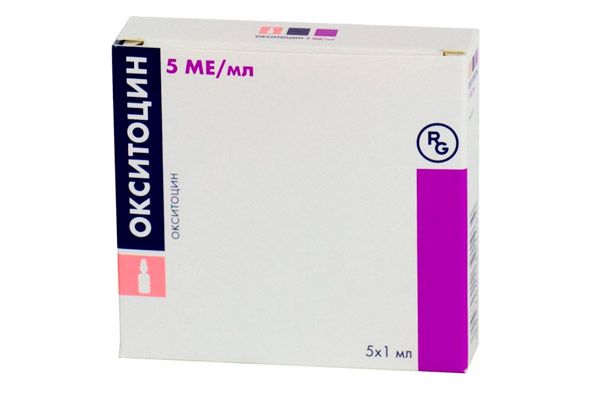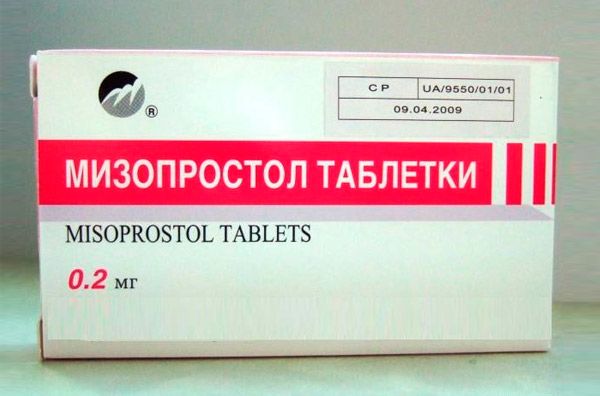Medical expert of the article
New publications
Early termination of pregnancy
Last reviewed: 04.07.2025

All iLive content is medically reviewed or fact checked to ensure as much factual accuracy as possible.
We have strict sourcing guidelines and only link to reputable media sites, academic research institutions and, whenever possible, medically peer reviewed studies. Note that the numbers in parentheses ([1], [2], etc.) are clickable links to these studies.
If you feel that any of our content is inaccurate, out-of-date, or otherwise questionable, please select it and press Ctrl + Enter.

Early termination of pregnancy is a concept that includes termination of pregnancy at the request of the woman before the twelfth week, as well as for medical reasons before the twenty-second week. There are many means and methods, but it is necessary to know the indications for the use of each of them and the features of using these methods.
Peculiarities of termination of pregnancy in different situations
When talking about abortion, one should not immediately imply something terrible, either in the technology or in the prejudices about the process itself. Each pregnancy is individual and the question of preserving the life of the child is decided by its parents. Therefore, the main goal is to choose the most suitable method that will ensure a minimum number of complications in the future.
Termination of pregnancy up to twelve weeks can be performed by any woman if she wishes. Indications for such a procedure may be, in addition to the woman's desire, a pathology on the part of the fetus, which is detected at such an early stage. If it is not possible to identify any congenital pathology of the fetus before twelve weeks, and it is confirmed at a later stage, then the woman is offered to terminate the pregnancy up to the twenty-second week. Thus, indications for termination of pregnancy at an early stage are the woman's desire, but before the twelfth week, or an abortion for medical reasons, which can be performed before the twenty-second week. Abortion at a later stage is considered a crime, since the fetus has formed and after this period it is considered completely viable. Speaking about medical indications for termination of pregnancy, the most common reason is a genetic pathology detected in the child. As a rule, Down syndrome is well diagnosed at this stage. In this case, based on the results of the first ultrasound, this pathology can be assumed, and then up to the twenty-second week, invasive diagnostic methods are performed - amniotomy and amniopuncture. This allows the diagnosis to be confirmed and the woman is offered an early termination of pregnancy, and the decision is made by the woman herself. Any other genetic pathology can also be an indication - Edwards syndrome, Patau, trisomy on sex chromosomes, congenital malformations of the skull, heart and much more. But in any case, although this is an indication, the decision is made by the parents, having assessed all the risks and consequences.
Contraindications to early termination of pregnancy are limited to those on the part of the mother and child. One of the contraindications is inflammatory diseases of the internal genital organs in the acute stage, which in the early postoperative period can give serious inflammatory complications and even a septic condition. Also contraindications on the part of the mother are blood diseases that are accompanied by its low coagulability hemophilia B, idiopathic thrombocytopenic purpura. As for other diseases, this is an acute course or a period of exacerbation of systemic diseases of connective tissue. During the period of acute inflammatory diseases of the lungs, kidneys - no invasive surgical interventions can be performed.
Contraindications from the fetus are limited to the time of the procedure, that is, termination of pregnancy is not performed at a later stage.
As for the legal side of this issue, the termination of pregnancy must be carried out with the consent of both the mother and the father of the child, and if the father of the child is against it, then this can be considered a contraindication.
Preparation for early termination of pregnancy consists of general actions that must be carried out in any method and in some cases, separate preparation is necessary, which depends on the method of abortion. And the methods can be different, depending on the term and conditions of implementation.
Basic methods of early pregnancy termination
Methods used to terminate pregnancy in the early stages can be divided into medical and surgical, and the latter in turn can be minor surgical interventions and surgical operations.
Medical termination of pregnancy in early stages is the use of drugs with different mechanisms of action to initiate an artificial abortion. Different drugs act differently. This determines the conditions of administration, the period of pregnancy at which they can be administered, as well as the main precautions for use. Tablets for termination of pregnancy in early stages are mainly aimed at systemic effects, and the pharmacological form of suppositories can also be used.
- Postinor is a common drug used during unprotected intercourse. It is necessary to take into account some features of the action for the best effect. This drug is a derivative of gestagens. After taking the drug, due to its gestagen effect, it helps to inhibit the ovulation process, reduces the activity of the endometrial glands and worsens the conditions for normal implantation of the egg. Such a delay in the ovulation process prevents the development of pregnancy, since the sperm already dies before the egg is released. If fertilization has already occurred, then the drug has no effect and in this case is not effective. Therefore, the main condition for such an emergency method of avoiding pregnancy is the use of tablets in the preovulation period and taking them within three days after unprotected intercourse.

The effectiveness of this drug when taken in the first twenty-four hours after sexual intercourse is more than 90%, and after seventy-two hours - about 50%. Therefore, for a more accurate effect, you need to take the tablets on the first day. The drug is available in the pharmacological form of tablets of 75 milligrams, two pieces per package. Taking the drug should be started immediately after unprotected sexual intercourse - you need to take one tablet orally, and no more than twelve hours after the first - and the second dose of the drug. Side effects are possible in the form of nausea, dyspepsia, decreased appetite, vomiting. If there were dyspeptic disorders during this method of contraception, then you need to take the same dose for effectiveness. Allergic reactions are also possible. The drug may affect the further menstrual cycle, in which case there may be a delay in menstruation, but not more than a week, as well as bloody discharge from the vagina.
Contraindications to taking the drug are age under 16, taking during pregnancy, and Postinor cannot be used as a permanent contraceptive.
Thus, Postinor is not so much a means for terminating pregnancy, but rather a means for emergency contraception.
- Oxytocin is a natural hormone secreted by the female body. It is not a means of terminating a pregnancy, but rather to control the condition of the pregnant woman.

Under normal conditions, oxytocin is secreted by the hypothalamus throughout pregnancy, but its concentration is highest just before labor. This ensures normal labor activity, since oxytocin stimulates uterine contractions. Therefore, oxytocin can be used to terminate a pregnancy, but under special conditions. It can be used at a later stage, after twelve weeks, but only after the cervix has opened. Thus, this drug can only be used for abortion for medical reasons and only in a medical facility. In this case, uterine contractions are stimulated and the abortion occurs as a natural labor process. This method of terminating a pregnancy is not the most effective; in such cases, preference should be given to surgical methods.
Oxytocin is used in parenteral form, it is most often used intramuscularly in a dose of ten units of action. The drug cannot be used in the presence of scars on the uterus.
- Progesterone is a natural human hormone that is secreted by a woman's ovaries and ensures the normal course of pregnancy.

It helps prevent ovulation in the presence of pregnancy, and also improves the trophism of the endometrium, which increases the effectiveness of implantation of the fertilized egg. Therefore, analogs of this hormone are not used to terminate pregnancy, but its antagonists are used. Progesterone can be used as a contraceptive in complex contraceptives.
- Duphaston is a drug containing the natural hormone progesterone. It is used in cases of threatened miscarriage, so the opinion about its effectiveness for early pregnancy termination is erroneous.
- Sinestrol is a hormonal agent that has an effect similar to estrogens due to its analogous action with folliculin. The mechanism of action of the drug is to increase the concentration of estrogens and their effect on the endometrium. Under normal conditions during pregnancy, the level of progesterone increases, and the level of estrogens decreases, which ensures the normal functioning of the uterus and placenta.

In case of increased estrogen levels or relative progesterone deficiency, muscle fibers are activated and the uterus begins to contract. In this case, the use of Sinestrol leads to contraction of the uterus and the onset of a miscarriage, that is, termination of pregnancy. This method of treatment must be carried out under strict medical supervision, since bleeding may begin. The drug is available in tablets, but injection forms are more often used to terminate pregnancy. In this case, the route of administration of the drug is intramuscular according to the scheme, but not exceeding the total dose - no more than 3 grams. Monitoring of the woman's condition is necessary. Side effects are possible in the form of dyspeptic phenomena - nausea, abdominal pain, vomiting, as well as bleeding from the genitals and changes in the mammary glands.
- Genale is a mifepristone drug, a progesterone receptor antagonist. This drug, in combination with misoprostol, is most often used for medical abortion.

The mechanism of action of the drug is to block receptors in the uterus to progesterone and in high doses the drug stimulates the contraction of the myometrium and the egg leaves the uterine cavity. The drug also increases the sensitivity of receptors to prostaglandins, which increases the rejection of the decidua. Therefore, it is necessary to use the drug in combination with prostaglandins. The use of the drug as a means of terminating pregnancy in the early stages is possible only up to the 49th day of pregnancy, the best option is the fourth or fifth week of pregnancy. The drug is available in the form of tablets of 200 milligrams, three or six pieces per package. The drug is taken in a medical institution at a dose of 600 milligrams, that is, three tablets at a time, after a light breakfast. Then you need to observe for an hour or two for the appearance of side effects. Nausea, vomiting, pain in the lower abdomen, discharge from the uterus are possible. Then the patient is sent home and comes the next day to continue - the second stage.
- Misoprostol is an analogue of prostaglandin E, which is the second stage of termination of pregnancy. The drug stimulates contraction of the uterus in high doses and after the rejection of the decidua due to the intake of mifepristone, the drug promotes the release of the remains of the ovum.

The drug is taken 24 hours after the first stage in a dose of 400 micrograms, that is, two tablets. Then bloody discharge begins like menstruation, if the pregnancy period is 4-5 weeks. Such discharge lasts from three days to three weeks maximum. It is necessary to monitor the condition, since anemia and other side effects in the form of uterine bleeding are possible. This is how pregnancy is terminated in the case of using medications - Mifepristone or Zhenale in combination with Misoprostol.
Such means of early pregnancy termination with medications are also effective, but they should be used under the above conditions, and also under the supervision of a doctor, then their effectiveness is high, and the risk of complications is the least. In any case, one should not forget about the possible complications of such a medical abortion, because there may be incomplete abortions or remnants of fetal membranes, so it is imperative to undergo an examination by a doctor after this type of abortion, preferably ultrasound control. Before deciding on such methods of pregnancy termination, it is necessary to evaluate all the conditions of pregnancy, its duration, the presence of contraindications, and then choose the best method.
Surgical termination of early pregnancy
Surgical methods of termination of pregnancy are used when the pregnancy term excludes the use of medical abortion. All surgical methods can be minimally invasive - this is vacuum aspiration of the fetus, as well as more extensive surgical interventions. Therefore, the main indication for surgical methods of termination of pregnancy is later terms - after the fifth week, when medical abortion is not performed. The main contraindications to surgical termination of pregnancy are, first of all, an ectopic pregnancy. In this case, it will not be possible to eliminate such a pregnancy, but only severe bleeding can be caused. The presence of a cervical cyst or an endometrioid cyst of the uterine cavity is also a contraindication to this procedure. In this case, there may be a traumatic rupture of the cyst, which will contribute to the development of bleeding or complications after surgery.
Preparation for surgical termination of pregnancy at early stages has some features compared to medical methods. It is necessary to conduct a comprehensive examination of the woman on the chair, find out the possible term of pregnancy by the date of the last menstruation, and also conduct additional research methods. It is imperative to conduct an ultrasound examination, which will make it possible to accurately determine the pregnancy term, the exact localization of the ovum and the presence of concomitant pathology, which is necessary for further tactics of determining the abortion process itself. A very important stage of preparation is a bacterioscopic examination of a smear from the vagina. This allows you to exclude the inflammatory process and makes it possible to carry out invasive interventions without the risk of ascending infection of the internal genital organs. It is this preparation that excludes the development of possible complications in the future - this is an important advantage of a qualified termination of pregnancy, in contrast to unreliable home methods.
Vacuum extraction of the fetus is a surgical intervention for termination of pregnancy up to eight weeks of pregnancy. This procedure is called so because of the technology of this type of intervention. In this case, under general anesthesia, most often, the cervix is first opened using prostaglandins or laminaria. This allows for further interventions. Then, a special device with a sensor is inserted under ultrasound control, which focuses on the place where the fertilized egg is attached to the endometrium. This device is connected to a device that has high power and attracts the fertilized egg like a vacuum cleaner, but it is 30 times more powerful. Thus, the fertilized egg is fermented and sucked in, leaving a lesion on the endometrium. After this, bleeding is usually slight, oxytocin can be used to stop it, but this is only if necessary. That's the whole procedure, which takes a little time, and if there are no complications, the woman can go home the next day.
If the pregnancy period is more than eight weeks, especially if it is more than twelve weeks, then a surgical operation on the uterus is performed. In this case, preparation is mandatory, then general anesthesia. The technique of the operation itself comes down to scraping the uterine cavity with a special instrument - a curette. The disadvantage of such an operation is that the doctor does not see what he is doing from the inside, and the entire functional layer of the endometrium is injured. After this, the woman should be under the doctor's supervision for some time, since the risk of bleeding is higher with such an operation.
Termination of pregnancy after twelve weeks is carried out taking into account that the fetus already has a formed placenta and body parts. In this case, a minor caesarean section with transvaginal access or stimulation of premature labor can be performed. Stimulation cannot be performed if there is a history of caesarean section or a scar on the uterus. In this case, transvaginal surgery is performed. The technique of such an abortion is as follows. The woman is put under general anesthesia. Then, after opening the cervix, amniotomy is performed with special means - the already formed fetal membrane is opened. Then, when the fetus with waters descends to the bottom of the pelvic cavity, it is extracted with forceps or aspiration is performed - thus, the fetus leaves the uterine cavity. If the fetal membranes do not come out, contractions of the uterus can be stimulated using oxytocin - five or ten units of action.
These are the main methods of surgical termination of pregnancy at early stages. They should be preferred if it is too late to perform a medical abortion, but it is necessary to prepare for this type of abortion.
Consequences and complications of early termination of pregnancy
Spontaneous termination of pregnancy in the early stages often happens to those who want to keep the pregnancy. This is a miscarriage and can be the cause of bleeding in the first trimester of pregnancy. Therefore, it is necessary to know what the main signs of this phenomenon are. Signs of termination of pregnancy in the early stages often appear suddenly, this can also be provoked by physical activity. In this case, pain appears in the lower abdomen, aching, pulling, sharp in nature, which is accompanied by bloody discharge from the vagina of varying severity. In this case, there may also be nausea, vomiting, dizziness, general deterioration, decreased blood pressure. All this must be taken into account and immediately seek help.
As for the consequences that may occur after termination of pregnancy, they can be early and late. Early consequences are those caused by the abortion procedure itself and most often this is bleeding. This is due to the fact that it is difficult to control the effect of the drug and the dose in order to cause sufficient contraction of the uterus, but at the same time such contraction should not be excessive. Therefore, it is necessary to monitor the woman for the occurrence of such complications. More serious complications are incomplete abortion, after which parts of the fetal membranes remain in the uterus. This can cause dense ingrowth of the decidua into the uterus and the subsequent formation of a hydatidiform mole. This is a very dangerous pathology, which is characterized by malignant growth and a poor prognosis. Therefore, it is imperative to monitor surgical or medical abortion by ultrasound.
There may be various inflammatory complications with ascending infection or with damage from a chronic source of infection. In this case, such a complication is manifested by an increase in temperature in the early postoperative period, intoxication syndrome, and purulent vaginal discharge. This requires taking serious measures and prescribing antibacterial therapy. Sometimes, if a woman has chronic foci of infection, antibiotics can be prescribed as a preventive measure to prevent the development of such postoperative complications.
Late complications of early pregnancy termination occur during subsequent attempts to become pregnant. In this case, adhesions may form in the uterine cavity, which complicate the process of egg migration and fertilization. These complications occur more often after surgical curettage and after several abortions. This is a very serious complication that requires long-term infertility treatment, which is not always effective.
The rehabilitation period after an abortion without complications in the professional sense lasts for three days, and it is possible to issue a sick leave for this period. But the rehabilitation of the woman's reproductive system lasts much longer, and this especially concerns the mental state. The restoration of the uterus and its functional inner layer occurs over the course of a month until the next menstruation, when all the remains of the fertilized egg and damaged endometrium can come out with particles of menstrual discharge. Then the involution of the enlarged uterus occurs. Also speaking about the ovaries, they begin to function normally a month after the abortion.
Mental rehabilitation of a woman should include moral and ethical aspects of support from her husband, as well as from the attending physician - this is an important stage in the recovery of a woman, which should not be neglected. If necessary, you should seek advice from a psychoanalyst.
Care of the genitals in the period after an abortion can be carried out as usual, but it is advisable to adhere more to hygiene measures, as well as hygiene of sexual life with its temporary exclusion during the period of rehabilitation until the next menstruation. Pregnancy should be postponed no earlier than six months, and preferably a year after the artificial termination of pregnancy.
Termination of pregnancy at an early stage is a very important step that must be thought through and decided upon with the least harm to your health. Therefore, a comprehensive examination, consultation with a gynecologist is necessary and only after that it is necessary to start choosing a method. Methods of termination of pregnancy at an early stage can be medicinal - up to 49 days of pregnancy, and then it is better to give preference to surgical ones. Although folk methods exist, they should not be used without consulting a specialist due to the high risk to your own health.


 [
[